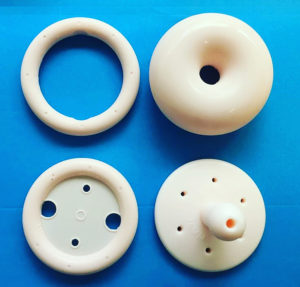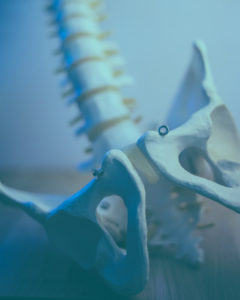
Back and/or hip pain not getting better?
Have you had longstanding back pain that doesn’t seem to go away? You’ve had multiple visits to chiro, physio, remedial massage or even an osteo and nothing has changed? Or regularly doing Pilates and core strengthening but not too sure if it is helping?
It may be worthwhile to consider your pelvic floor. Your pelvis is the stomping ground for a lot of musculature (and other structures including nerves, veins, arteries and pelvic organs) and because of that they all share a relationship and interact with each other. So the muscular regions that are associated with your pelvis are the back, abdominal wall, glutes, hips, thighs, groin, hamstrings and lastly your pelvic floor. Tension, weakness or an injury to one of these areas has the potential to change your posture and how you use your body, but also impact the way the surrounding muscles also work.
Now let’s go on a side note. For females in particular with pregnancy:
- Your pelvic floor has to support the weight of bubs during your pregnancy
If you have had a vaginal delivery, your pelvic floor has to stretch up to 3 times it’s normal length to deliver - Was the birthweight and head circumference above average?
- Not only that, but did you need an episiotomy or did you tear?
- How long was your second stage? Was it quite long or very very short? The second stage can determine to a degree your pelvic floor strength
Let’s talk now about postpartum and that can be a whole other ball game:
- Urinary incontinence. Leakage with movement or exercise? Leakage with coughing and sneezing? Could it be that your pelvic floor isn’t strong or coordinated enough to protect you?
- Let’s add in prolapse. One of the common symptoms that occurs with prolapse is back ache. So could your back ache actually be because of the prolapse?
- Pelvic pain. Is there pain with intercourse or orgasm? Pain with urination or emptying bowels? Or do you have vaginismus or vulvodynia? (Pelvic pain can be an exception and can occur at any stage in a women’s life)
For males they don’t have to worry about pregnancy, childbirth and labour, But the points below could be relevant.
- Do you have urinary incontinence? Or do you have any urinary urgency (even if it is minor)
- Changes with how you empty your bladder or bowel? Do you feel like you haven’t finished? Or is it that you have pain as you are emptying your bladder or bowels or pain that persists post emptying?
- Pelvic pain? This includes pain with intercourse, orgasms, testicular and/or penile pain, pain with bladder and bowel emptying
Have you noticed if the above symptoms get worse when your back pain gets worse or vice versa? If you feel that you have back pain and there are one or more of the above symptoms then a very possible contributing factor and explanation could be the pelvic floor.
Your pelvic floor plays an important role with pelvic function and health. So even if you are experiencing any of the above symptoms regardless of how minor it is, it may be worthwhile exploring the potential role of the pelvic floor for back pain.
Your pelvic floor spreads across the bottom of your pelvis and because of its attachment to the pelvis, it can have the potential to contribute to your back pain. Is it that there is some weakness of your pelvic floor or we can venture down the other end of the spectrum or is it there is tightness in your pelvic floor?
Either way the biomechanics of how your pelvic floor interacts with everything else. But it can work the other way where if there is back pain, your pelvic floor can react to this. Back pain changes our pelvic postures and your pelvic floor function can change. Do you improve one to improve the other?
And potentially another possible thought to get you all thinking, are you stressed? Or poor sleep quality? If yes, that throws another factor into the mix.
So do you think that your pelvic floor should be something to explore to help with back pain?
Related Articles

Endometriosis. What can be done?
Pregnancy related pelvic pain and everything starts to get a little bit too much

Prolapse and Pessaries
Pregnancy related pelvic pain and everything starts to get a little bit too much

I have a prolapse, now what?
Pregnancy related pelvic pain and everything starts to get a little bit too much